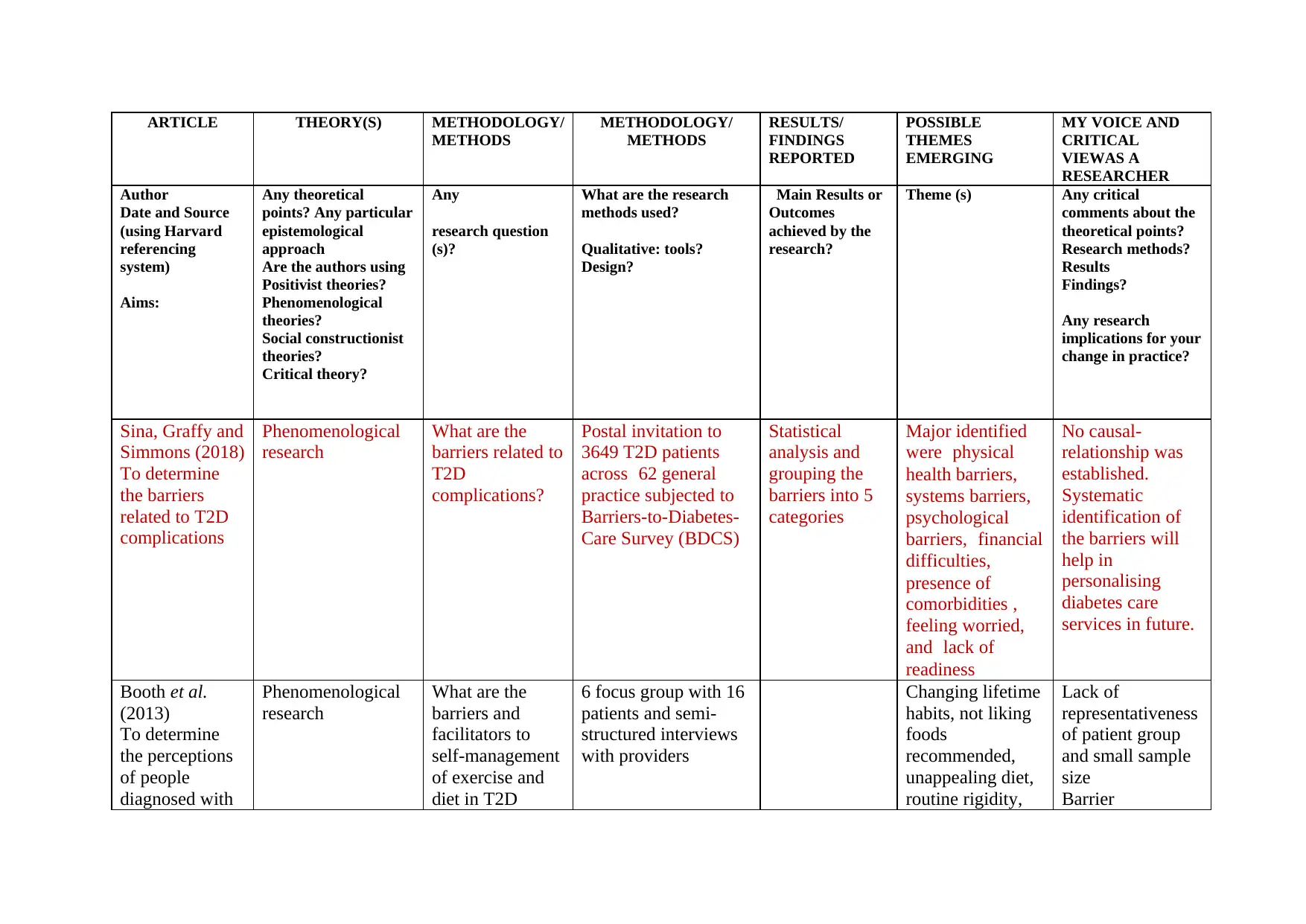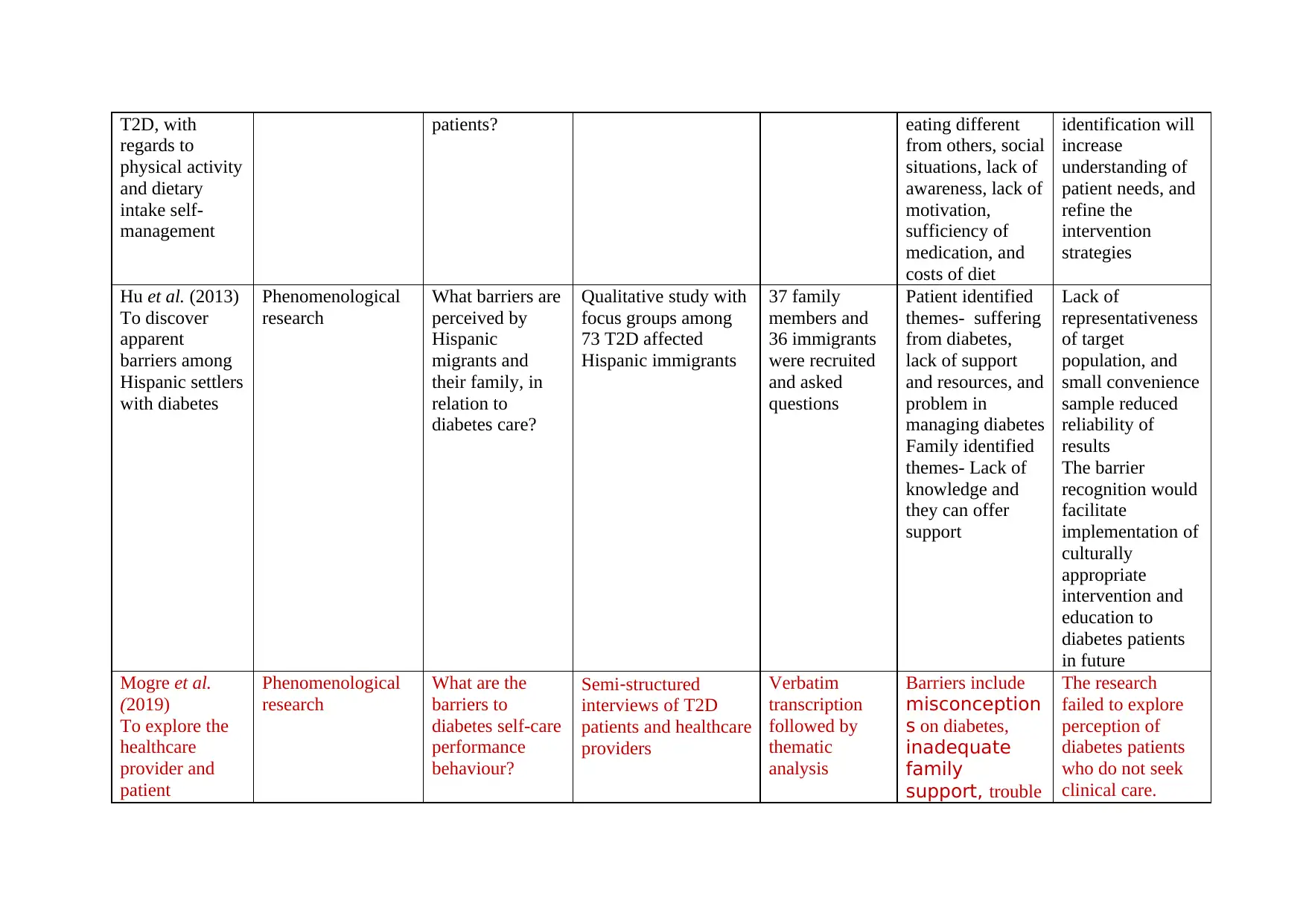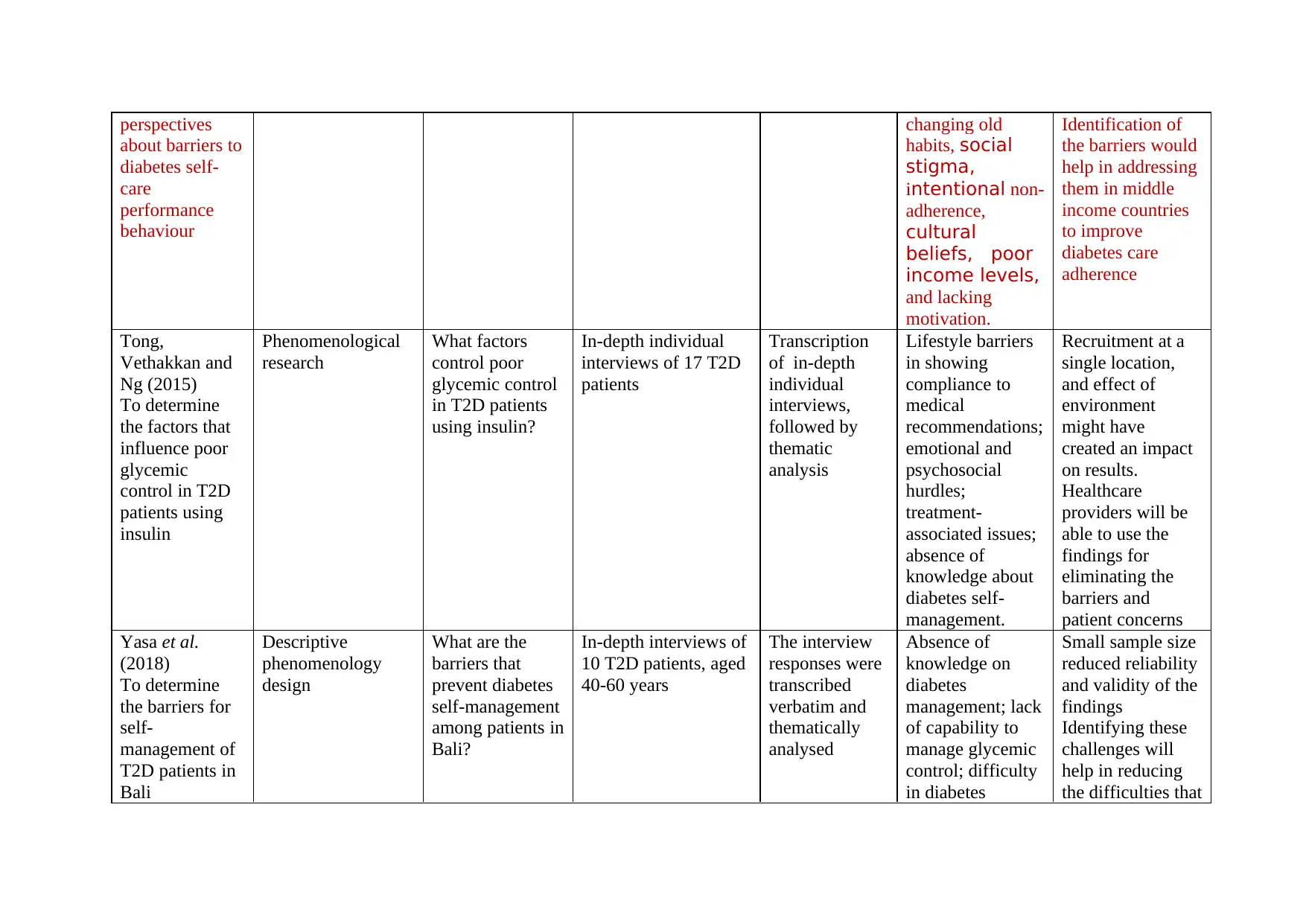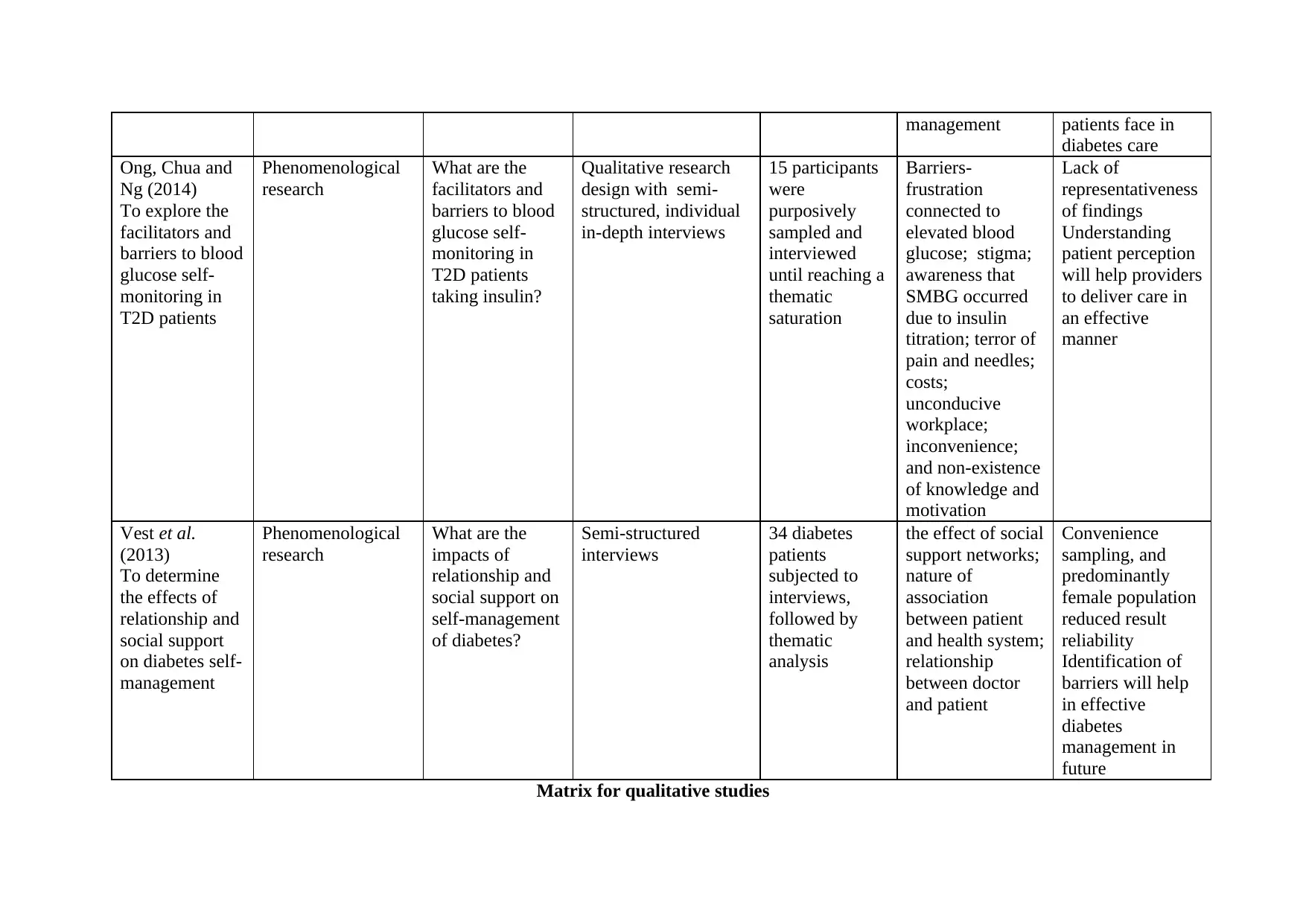Literature Review: Diabetes Information and Care Access UK
VerifiedAdded on 2023/04/20
|5
|983
|380
Literature Review
AI Summary
This assignment presents a literature review exploring the challenges individuals with diabetes face in accessing information and medical care within the UK. The review analyzes various studies employing phenomenological research methods to identify barriers to diabetes self-management, including physical health barriers, system-related obstacles, psychological factors, financial difficulties, and the presence of comorbidities. The review examines the perceptions of both patients and healthcare providers, highlighting themes such as the impact of social support, cultural beliefs, and the lack of awareness or motivation. The research identifies gaps in current care models and suggests implications for improving personalized diabetes care services, culturally appropriate interventions, and enhanced patient education. Ultimately, the review aims to provide insights that can inform healthcare providers and policymakers in addressing these challenges and improving diabetes management in the UK. This document is available on Desklib, a platform offering a wide range of study tools and solved assignments for students.
1 out of 5





